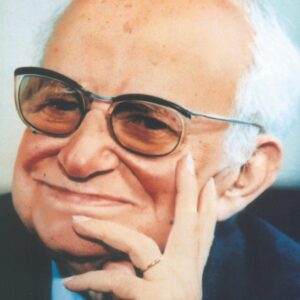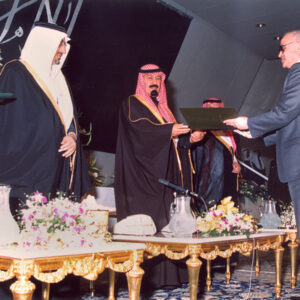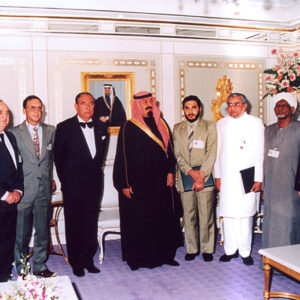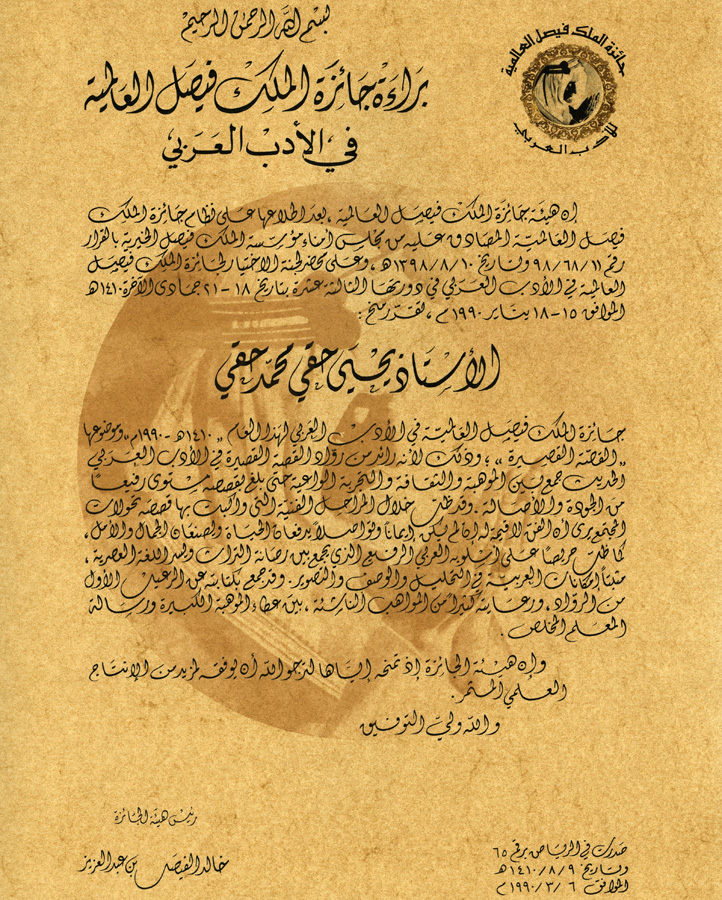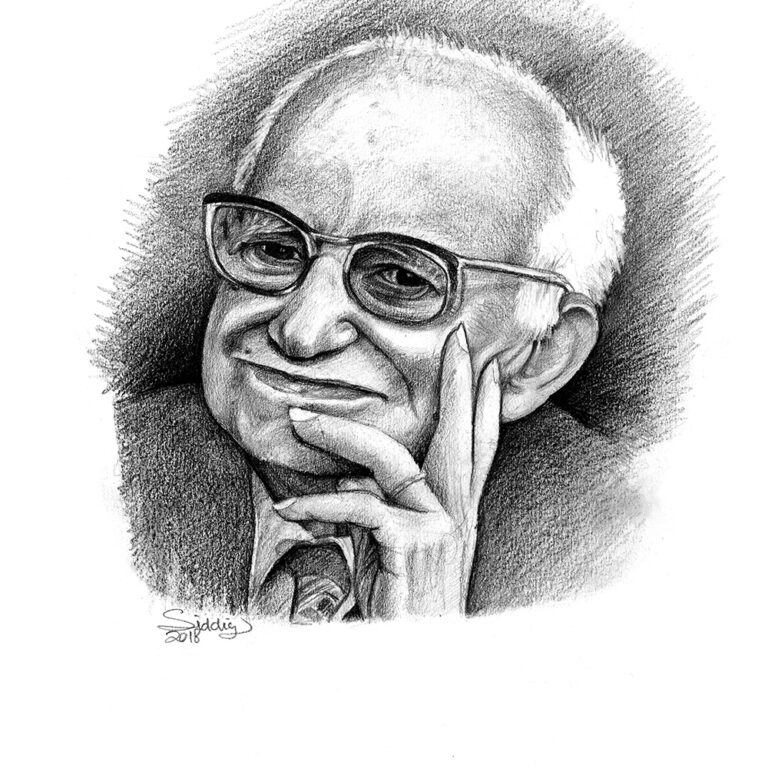
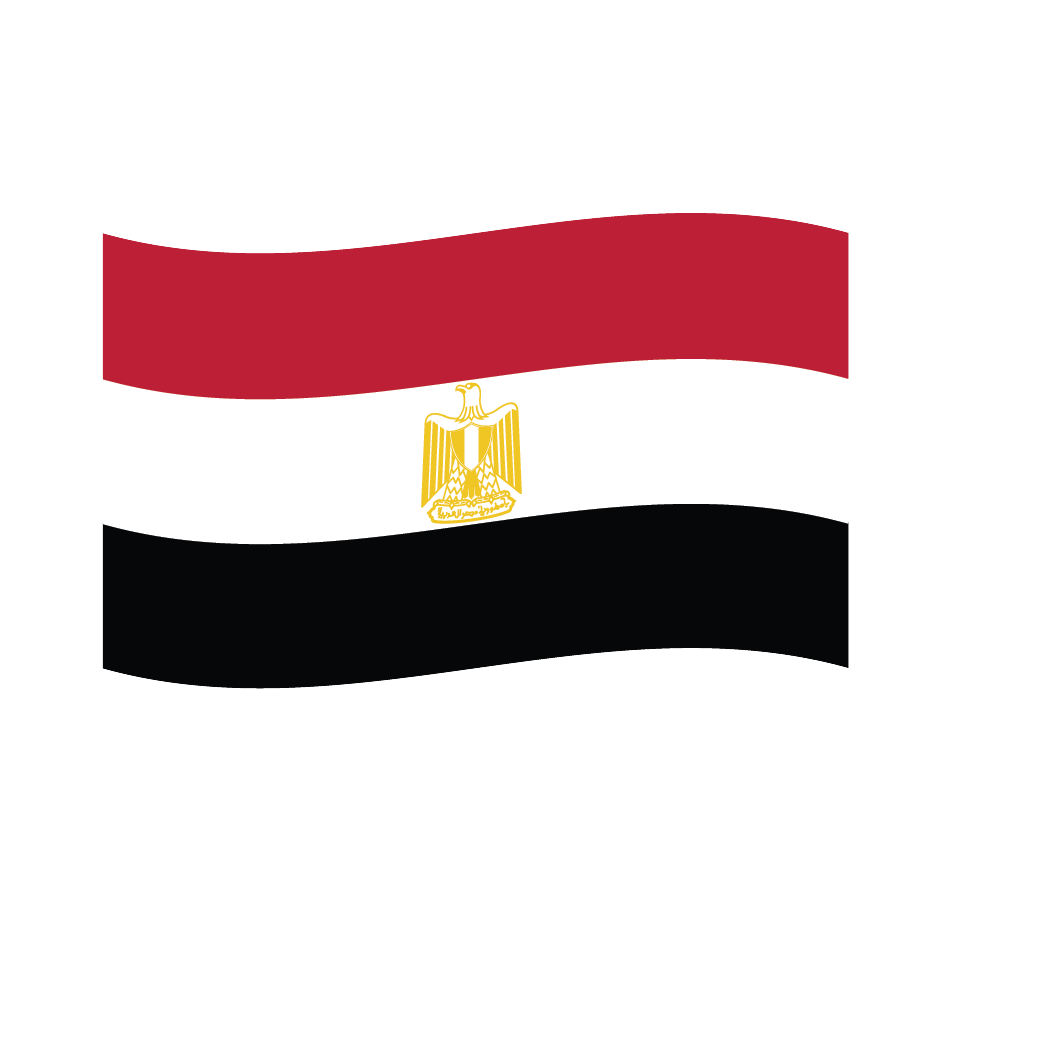
Mr. Yahia M. Haqqi
King Faisal Prize in Arabic Language and Literature 1990 Laureate
Topic: "Short Novels"
Literary writing is an internal expression, but we can’t neglect the external surface represented in knowledge and culture

Yahia Haqqi was originally trained as a lawyer and served as a diplomat in his country’s missions in Turkey, Italy, France, and elsewhere, but it was not long before he realized that he was born to be a writer. Thus, he resigned his lucrative job to become a full time novelist.
Haqqi was a writer with great passion and imagination. He published his first novel in 1926 at the age of 20. For the next 60 years, he wrote a superb collection of novels and short stories that placed him at the forefront of modern Arabic short story writers. His belief in the role of literature as a driving force of life and an enhancer of society’s values, was strikingly evident in his writings. Some of his greatest novels are Qandil Um Hashim (The Saint’s Lamp), Sah al-naum (Wake Up), Dimaa wa Teen (Blood and Mud) and Al-Bostaji (The Postman), which reflect social changes in Egypt since the first quarter of the 20th century. In these novels,
as in all his other works, he maintained a richly poetic style and imagery without losing track of his heritage. He also wrote an autobiography entitled Kalliha ala Allah (Leave it to God) and some books of literary criticism.
Yahia Haqqi was a prominent figure in the cultural life of Egypt. He contributed significantly to the creation of art institutes, theaters, and folklore troupes in his country. Apart from the King Faisal International Prize for Arabic Literature, his numerous awards include honorary doctoral degrees, the Egyptian State Prize for Literature in 1969, Egyptian Order of Merit, and French Order of Knight in 1983. His books were translated into different languages and his life and works are still the subject of extensive study both in the Arab world and the West.
This biography was written in the year the prize was awarded.
Yahia Haqqi Mohammad passed away in Cairo, on 9/12/1992.

